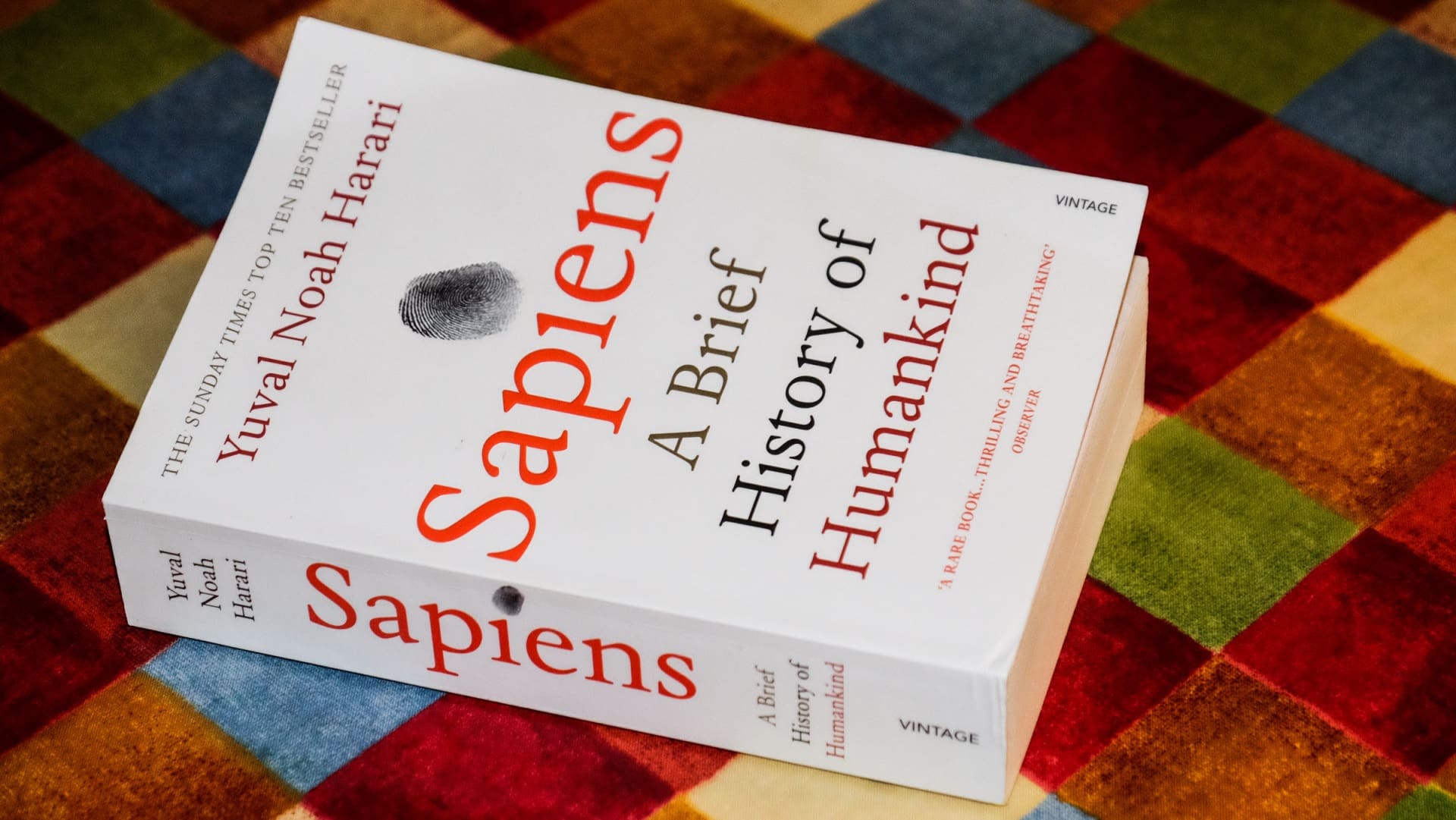When philosophy becomes irrelevant in the high culture of a society, authors who popularize the classical questions of philosophy in relation to general cultural currents can benefit greatly. The general crisis, explained and formulated by Edmund Husserl in the first half of the 20th century already, is about the general subordination of non-’empirical’ and non-‘exact’ philosophy to the ‘exact’ natural science. This overall climate can also favour ‘popular science’ authors.
Today, with the exception of the narrowest reading elite, Europeans are not concerned with philosophy, and, of course, with the classical philosophy of history either. Let’s note, however, that this is actually nothing new, since, due to its very nature, philosophy (as in ‘the love of wisdom’) has never been fodder for the masses.
Paradoxically, it can also be observed that philosophy, or more precisely, philosophical literature, comes to the attention of the widest audience exactly when, with the weakening of traditional principles and worldviews, the eternal will that strives to reshape society takes advantage of this. It needs a new kind of ideology, a new way of explaining the world, which needs propagation through various channels.
This new, ‘popular’ version of philosophy, which entails the philosophy of history, also appears as ‘popular science.’
The expression itself indicates that it’s not intended to be viewed as philosophy, but ‘exact’ science, which—as the authors of popular science are mostly scientists themselves—could theoretically claim a high level of scientific objectivity.
It could, but it doesn’t necessarily present itself as such.
Yuval Noah Harari is a prominent ‘specimen’ of the authors of such ‘hybrid’ works that make use of the most advanced technical language of natural science. Harari is a historian by education, a professor at the Hebrew University of Jerusalem, and holds an honorary doctorate at the Vrije University in Brussels.
Regarding his books, however, with the exception of the early books dealing mainly with military history, he can be classified as a philosopher of history rather than a historian specialist. He is the author of books such as Sapiens — A Brief History of Humankind, Homo Deus — A Brief History of Tomorrow, and 21 Lessons for the 21st Century, which have sold millions, if not tens of millions of copies. Popular science in itself does not necessarily equate to some kind of scientific obfuscation, manipulation, or even propaganda in the guise of science. In the case of Harari, however, the first impression one gets when one starts to read his works points in that direction.
The reason for this first impression is, first of all, a distinct use of words, and a rather loose style of expression, which immediately calls into question the alleged objectivity of the above-mentioned scholarly approach. It definitely goes beyond questioning things that are taken for granted and provocative attention-grabbing. Harari actually simply presents what is already represented by modernity itself as a cultural-historical meta-narrative and a philosophy of history, but does it in a more systematic and undoubtedly more radicalized form. Thus the author’s audience is well in advance prepared for its favourable reception.
However, for those who do not examine Harari’s works with an attitude of naive wonder, or for those who have some education and insight that goes beyond the most simplistic applications of the modern scientific worldview, it is obvious that the author’s presuppositions are completely identical to that of materialist epistemology and philosophy.
When getting acquainted with the books, it becomes obvious that the author is one of those belated ‘enlighteners’ who are very interested in religion, however, despite the achievements of comparative religious history, philosophy of religion, or other disciplines, do not attribute value to the great world religions of humanity. Meanwhile—and this seems clear from the suggestions of Harari’s works—
he can also be classified as one who still does not give up on the utopia of building a ‘new man’ and a ‘new society.’
The author—no matter how much he tries to present himself as an independent– represents the ideology of ‘progress’, even if he is supposedly sceptical of such outdated assumptions and concepts.[1] Whether someone is an unconditional believer in the ‘religion of progress’ or not, cannot be determined by the occasional raising of pseudo-sceptic questions[2], but rather by the fact that he sees nothing else in history as important, only that ‘from where to where’ man got.
The essence of history, according to Harari, is that man gradually rejects, ‘transcends’ his own humanity, and thus becomes a kind of ‘superman’,
which is actually a pure intelligence moved by machines, as if Descartes’s ‘res cogitans’ were cut off from its body. Harari’s materialism—in a manner similar to the arguments of the popular evolutionary biologist Richard Dawkins—presents itself not as philosophical materialism, but rather as some kind of abstract ‘science’, and above all, emphasizes its objective, verifiable, and empirical nature. The author sells us an ideology, which would not be a problem if this ideology did not appeal to us under the guise of objective scientificity.
The presuppositions of materialism are, of course, unprovable within the mere framework of rationality. Harari’s materialism views every approach in which some kind of non-material factor is involved as an explanation of objective phenomena as superstition (‘fictitious basis’, or ‘imagined realities’, as he puts it), and interpreted as a projection of the mind onto reality. However, he actually forgets to apply the theory of projection to the realities constructed by his own.
Of Harari’s three important books, Sapiens is the one which established his international reputation. Sapiens is his most tangible historical-philosophical work, and it was conceived entirely in the spirit of the utopia described above.

Homo Deus and the 21 lessons serve as more of a supplement to it, elaborating on the main theses expressed therein with certain shifts in emphasis and according to different, partly new aspects. Harari’s point of view—although he seems to distance himself from any kind of naivety—is actually extremely naive. He is extremely naive even when, on the basis of epistemological optimism, makes our potential understanding of the world dependent on increasing the functionality of the human sense organs, and also when he derives ‘order’ from ‘disorder.’ Also, he, even more naively, then applies his linear theories of historical progress, strongly influenced by 19th-century evolutionism, to human history.
Thus, Harari’s worldview essentially remains in the same progressive paradigm—already profoundly criticized by Spengler and Toynbee—which is a direct continuation of the philosophical interpretations of ‘progress’ of the 18th and 19th centuries. In this sense, Sapiens’s picture of history will be a bleak and sad example of a view of history set by the interest of spectacularly ideological goals.
The author’s approach to human history is as one-sided and superficial as the theories of vulgar materialism about the order of the natural world.
The ‘progressivist’ view of history applied by the author simplistically suggests that modern civilization, which has become practically global today, is the only viable path on which the track of history can move. This interpretation of his is also spectacularly clear from the fact that, according to Harari, in history, the periods before the present can only be evaluated from one sole point of view, and can only be taken into account to what extent they laid the foundation for the development of the global-globalist form of civilization.
From this point of view, the agricultural revolution projected back into prehistoric times, as well as the formation of the first empires, the history of Rome or, in general, imperialism, can be analysed at length and exhaustively evaluated, as ideas. Also, the only positive thing about the great world religions is that they helped the ‘unification’ of humanity. Civilizational, cultural, religious, and artistic phenomena are valuable and interesting from the sole point of view of whether they help blur the differences between cultures, civilizations, people, and peoples or not.
Of course, differences always mean something bad: inequality, intolerance, racism, or oppression; while the disappearance of differences can always only be good: tolerance, ‘respect for otherness’, ‘a more peaceful world’, the development of sciences, increasing living standards, and so on. Of course, there is not much talk about whether the formation of the ‘world village’ involves the loss of significant values, whether there is something in globalization that is under the umbrella of destruction, something that obliterates the diversity of cultures and societies, that is itself coercion and violence.
According to Harari’s argument, technical development could ultimately make sapiens, i.e. homo sapiens, as the currently known human species ‘redundant’ and replace it with homo deus, i.e. the divine man.
The ultimate goal of the author’s technological utopia is the human brain enhanced and immortalized by machines, or possibly even separated from the physical brain, a consciousness that surpasses ‘consciousness’ and intelligence that surpasses ‘intelligence.’ He imagines this in the sense of ‘transhumanism.’[3]
Transhumanism—at least in the form in which it is represented and explained by Harari—stands, above all, on the ground of anti-religion. The mechanical man, who becomes immortal, as the meaning and purpose of history, is above all the opposite of the eschatological perspectives of all religions: the denial and desecration of the idea of mortality and eternal life. It is not surprising that for Harari, religion—whatever he says about its ‘important’ role—is mostly an object of ridicule.[4] However, there is essentially nothing in his critique of religion that Marx, Feuerbach, or even Nietzsche did not write down already. For readers somewhat acquainted with the history of philosophy, similar or even the same arguments may be familiar from even earlier: a ‘classic’ figure of the French Enlightenment, Baron Holbach also formulated similar ideas in his pamphlet published in 1761 entitled Christianity Unveiled. We could also mention La Mettrie’s writing L’homme machine (Man a Machine) published in 1748, which in a certain sense already evokes the idea of transhumanism.
The cult of technological utopia is as old as the development of modern technology. The first significant work in this vein is perhaps a Renaissance utopia, namely Francis Bacon’s New Atlantis. Even today, there are ‘technognostic’, scientists and philosophers who assume that through technology, man is capable of achieving superhuman states and superhuman knowledge.
The basic formula is simple: through the use of technology, people become smarter, more virtuous, and even more moral. Religion, like in Marxism, is in fact recognized by Harari as a product of the unenlightened person’s ignorance, fear of death, and lack of rational thinking.
However, the undoubted novelty of the work is that it adds the witty,—but extremely degrading for any religious worldview—assessment, that religion is basically just the same thing as a business enterprise. According to Harari, certain ‘modern institutions’ rest on the ‘same’ foundations: from this point of view, modern (that is, not yet transhumanist) man is exactly as ‘primitive’ as his prehistoric or medieval ancestors.
These institutions are ‘imagined realities’ that is, they are not realities in the roughest material sense.
‘How exactly did Armand Peugeot, the man, create Peugeot, the company? Much in the same way that priests and sorcerers have created gods and demons throughout history, and in which thousands of French curés were still creating Christ’s body every Sunday in the parish churches.’[5]
In this and other similar statements, a prejudice can be seen. The author who regards his own materialistic worldview as practically the same as ‘scientific’ and ‘objective’ approaches, forgets to reflect again and again on his own philosophical and ideological foundations, premises, the constructed and theoretical nature of his own worldview, and the problems and philosophical criticisms of materialist epistemology.[6]
After reading Sapiens and other works, I can confidently state: the author is not interested in learning about history in order to gain broader knowledge about the past.
He is not interested in expanding his knowledge about people, or maybe in the feeling of belonging to the past. He is not interested in the idea of the chain of generations either, nor perhaps in a sense of community with the ancestors.
In his view, the study of history and, along with it, the craft of a historian itself is judged on the basis of whether Hakiri can use it to justify an ideology. For him, history provides a kind of field for the unbridled desire for ‘experimentation’ and for the extreme ambitions of an individual torn from their transcendental foundation, with all their arrogance towards nature and all things. If anything, this can certainly be learned from history, and no less from some mythical narrative of the mocked religions —such endeavours often end in the most unfortunate failure.
[1] According to Hungarian historian Péter Hahner, who wrote the foreword to the Hungarian edition of Sapiens, Harari at least views the concept of progress with ‘scepticism.’ Yuval Noah Harari, Sapiens – az emberiség rövid története (trans. Péter Torma, Budapest: Animus, 2015), 3–8.
[2] See e.g.: ’In the last few decades we have at last made some real progress as far as the human condition is concerned, with the reduction of famine, plague and war. Yet the situation of other animals is deteriorating more rapidly than ever before, and the improvement in the lot of humanity is too recent and fragile to be certain of.’ (Yuval Noah Harari, Sapiens — A Brief History of Humankind, Signal Books, E-book, 466.)
[3] For a detailed and partly critical analysis of transhumanism, see: Spiritualities, ethics, and implications of human enhancement and artificial intelligence. (ed. Chrytopher Hrynkow)
[4] The ‘God’ chapter of the 21 lessons, for example, is also telling, as in it he tries to ‘justify’ the absurdity of the idea of God with the ‘meaningless’ and ‘irrational’ nature of religious rules, somewhat similar to the methods of the Great French Encyclopedia, with demagogic reasoning.
[5] Yuval Noah Harari, Sapiens — A Brief History of Humankind, Signal Books, E-book, 41.)[6] Just to mention one fundamental point of critique: until now, no law has been discovered in nature that would justify the transfer of quantitative changes into qualitative changes. In living nature, the spontaneous emergence of consciousness from matter cannot be proven, just as it is not possible to prove that horizontal changes in matter result in a vertical jump. This kind of continuity between quantity and quality exists only in the act of the constituting mind: in the mind of the philosophizing materialist, who projects his own subjective images and interprets them as objectivity.








